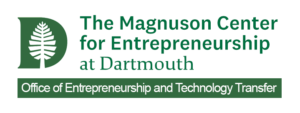Grant Program Supports Social Founders and Changemakers
The Magnuson Center is supporting socially inspired entrepreneurship and engaging with global challenges, beginning with a new grant program.

The Magnuson Center is supporting five individuals engaging with global social entrepreneurship challenges through a new program, the Social Founders and Changemakers for Impact grant.
“This grant is meant to be providing greater access and individual attention to students who are already driving change,” says Kathleen Burke, Program Manager for Social Entrepreneurship at the Magnuson Center.
The grant recipients each received $1,000. However, the promise of the grant is more than just financial. Burke plans to leverage social capital resources and educational opportunities for this first cohort of grant recipients. In March, Burke hopes to attend the Harvard Social Enterprise Conference with the students.
“We’re providing them with this small financial reward and giving them opportunities that can help them on their journey,” Burke says.
The first cohort of grant recipients includes mostly international students. That’s intentional, says Burke, as the Magnuson Center works to more actively engage with global challenges.
“We’re shifting where we’re focusing, making entrepreneurial approaches applicable to a whole host of industries, contexts, geographies, communities,” Burke says.
Although those challenges are daunting, “there’s a lot of hope,” Burke says, especially with new programming like this grant. “It’s about providing those pathways for students to get resources and build their networks.”
The first cohort of the Social Founders and Changemakers for Impact grant is made up of the following ventures.
Unifund Zimbabwe
Founded by Shandu Chiuswa D’24, Unified Zimbabwe is a non-profit dedicated to helping low-income high school seniors in Zimbabwe access a college education.
“We couple the financial aid with career guidance and networking opportunities for students,” Chiuswa says. “Our program is designed to provide guidance throughout a student’s college life. The goal is to ensure that students have the necessary support and funds to thrive like students with more financial access.”
She will use the grant funding to supply financial aid to the first cohort of students. In addition, some of the funds will be used to secure non-profit status.
“It will help us attract more students and sponsors once we have registered as a nonprofit and serviced our first cohort of students,” Chiuswa says.
Memry
Founded by Tishya Srivastava D’23, Memry is an app for Alzheimer's patients and their caregivers. The app aims to increase engagement between the two groups, something Srivastava understands the importance of after watching her grandfather fight memory loss.
“It is the mission of MEMRY to create moments of enjoyment, fun, and happiness in these families who have been burdened with a disease such as Alzheimer's that has no cure yet,” Srivastava says.
Srivastava plans to use the funds to gather feedback from her target audience.
“I would love to connect with people who have worked in the field before or are a caregiver themselves. These conversations are very meaningful and will help grow the support community to bring a smile to these families,” she says.
Forward Future
Forward Future is a nonprofit dedicated to fighting food waste and food insecurity. It was co-founded by Vedant Tapiavala D’26. Through an app called FoodNex, Forward Future connects donors who have surplus food with organizations that address hunger.
“We intend on using this money to fund database costs for FoodNex, directly keeping the app up and running,” Tapiavala says. “Thus, this money allows us to keep helping hunger assistance organizations.”
So far, Forward Future has coordinated the donation of more than 61,000 pounds of food, valued at more than $76,000.
Your Story
Founded by Andree Solé MALS’25, Your Story is a chat bot with therapeutic potential.
“It is to be used as a therapy adjunct for people with trauma or mental health disorders to allow them to approach their issue with creativity and privacy,” Solé says.
“They don’t have to discuss their issue directly, and they can change the story in any way that they find helpful. For example, addiction can be the villain in the story: to be fought and defeated.”
Solé will use the grant funds to host the app and gather feedback from users.
“This will advance the mission of the project by trying to validate the therapeutic value of the activity,” she says.
The MentalLiberty Foundation
The MentalLiberty Foundation is a nonprofit dedicated to eliminated mental healthcare disparities for African youth by destigmatizing and de-Westernizing mental health supports. It provides culturally tailored, experience-based interventions, research, and innovation.
The Foundation created Zambia’s first mental health curriculum. Now, they’re working with the Ministry of Education to bring the programming to high school in Zambia. The grant funding will help with logistics and expenses associated with that, says founder Michael Moyo D’22, Th’23.

